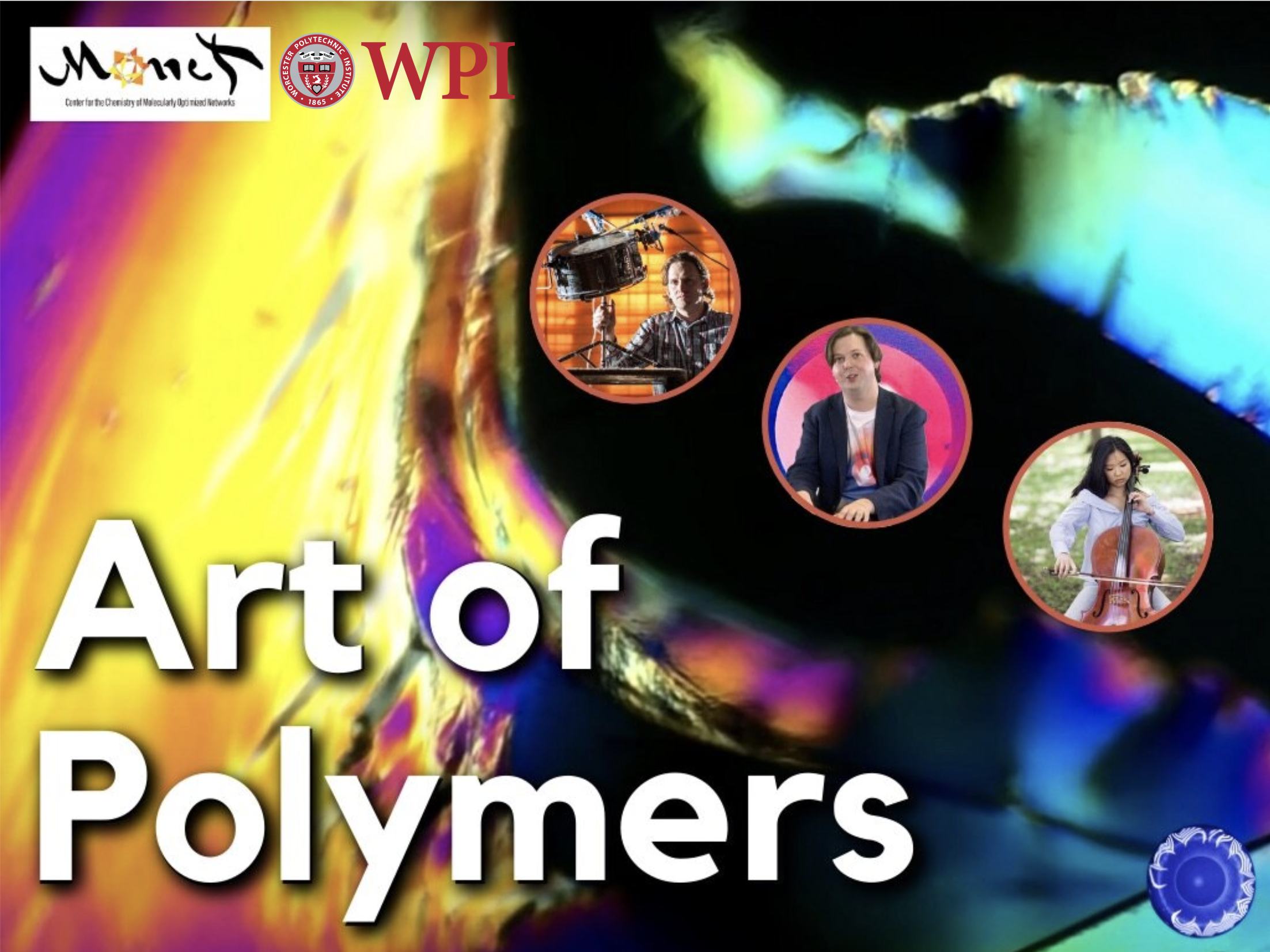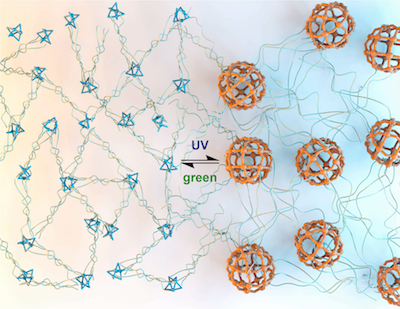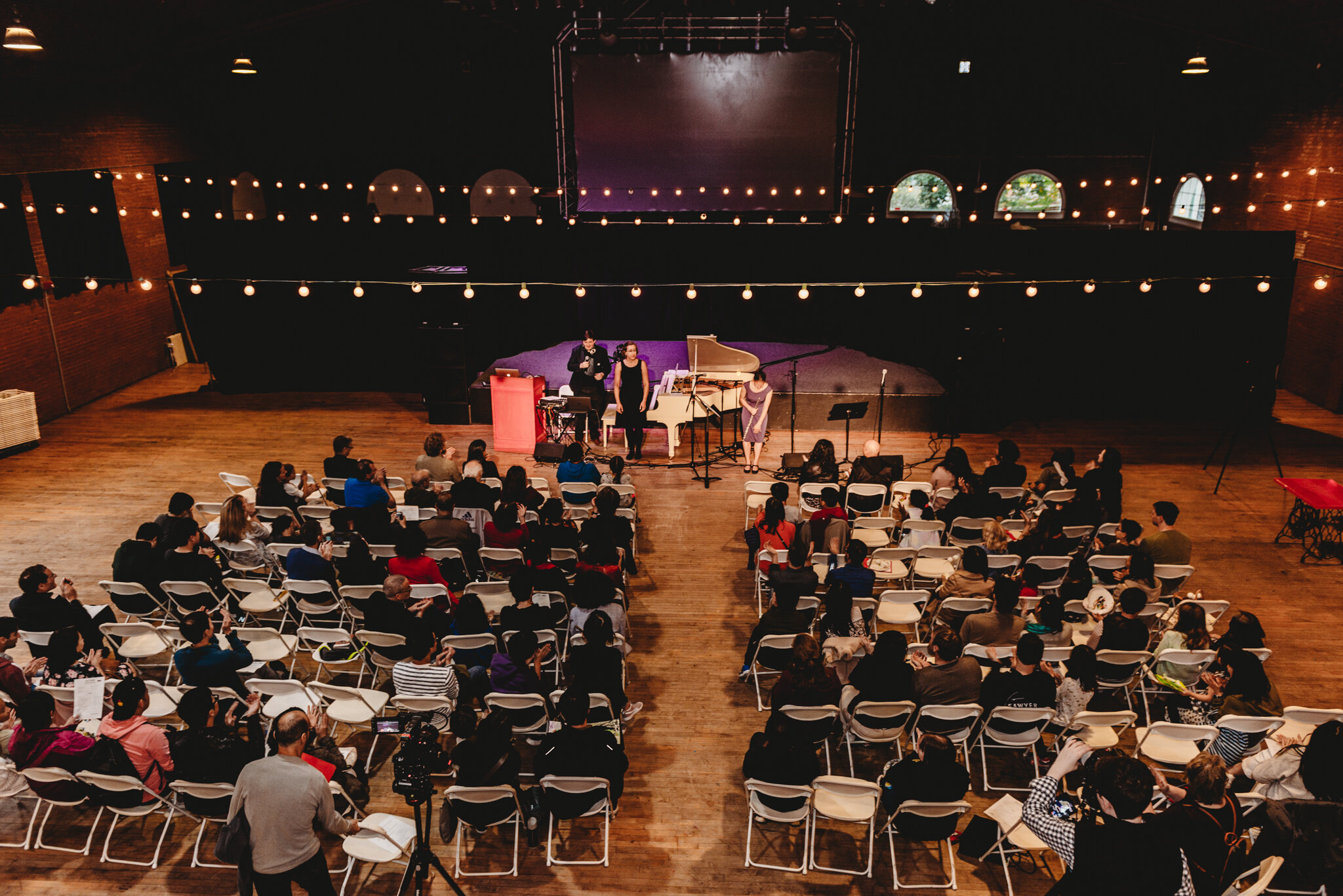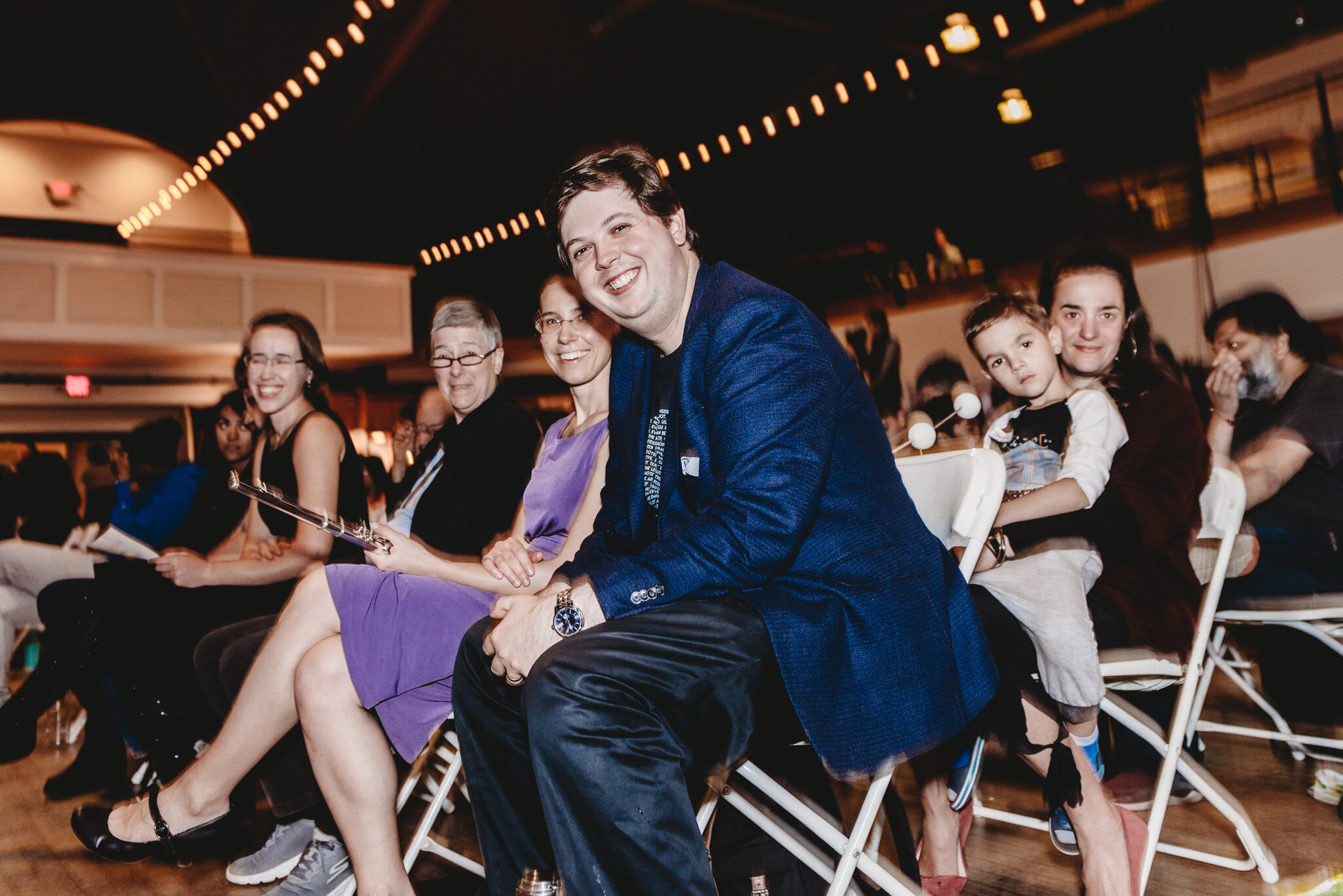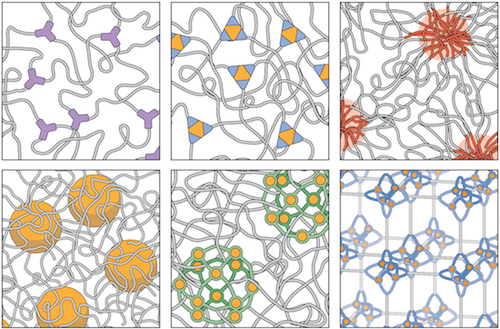a musical celebration of the 100th anniversary
of polymer science
by Multiverse Concert Series, the MONET Project,
and the WPI Music, Perception and Robotics Lab
Artificial Polymers - now celebrating their 100th anniversary - are essential to our modern lives. In order to meet the needs of the future, scientists must continue to innovate, designing new polymers that are not only degradable, but able to solve new challenges in our ever-developing world. Art of Polymers celebrates this cutting edge research of the MONET Project in concerts of music and science for audiences of all ages.
Learn more about how the Center of Molecularly Optimized Networks is transforming polymer chemistry research here: https://www.monetcci.org
Stage II Concert: September 16th 2022 live at MIT
Scientists: Dr. Rebekka Klausen and Sophie Melvin of Johns Hopkins, Dr. Jeremiah Johnson of MIT, Clara Troyano of MIT, Jafer Vakil of Duke University.
Performers: Johnny Mok Cello, Dr. David Ibbett Piano/Electronics, Dr. Scott Barton Musical Robotics
Compositions: Scott Barton, Amir Bitran, David Ibbett
Stage I Concert: January 29th 2021
Our premiere concert was given as a live-streamed event during COVID lockdown, attended by over 300 participants:
Audience Reactions:
“I just finished watching the Jan 28th Art of Polymers and had to share how amazingly this program enriched my visceral understanding of polymers. I'm a musician not a scientist, but I work administratively with people immersed in polymer science and engineering. The creative arc of tonight's program, reached every part of my brain, feeding my hunger to understand what polymers are, the urge to engage artistically, and a connection to man's role in healing the world through chemistry. It was the perfect balance of exposition and demonstration, and each presenter's unique link in the presentation "chain" truly added and enriched the experience for me. Thank you so much and looking forward to the Neutrinos program on February 14th. Bravo!”
Greg S, Audience Member
The Compositions
Semicrystal - Peter Qin
Music by J.S. Bach
Performed by Minjin Chung and Abraham Herzog-Arbeitman
David Ibbett - Polycello
Scored for 9 multitrack cellos, performed by Minjin Chung
For the Remarkable Materials of the Monet Project
And the 100th Anniversary of Polymer Science
When I was a child, my dad designed a board game "Mad Molecues", and my brothers and I had great fun playing it on rainy afternoons. Years later, I find myself drawing on these memories as a way to bridge polymers and music in my collaboration with the MONET project. In Polycello, the four most common artificial polymers - polyethylene, polypropylene, polyvinyl and polystyrene - are transformed into melodies through a musical game called "Intervallic Chemistry", where each atom is represented by an interval matching its atomic number. These melodies come together to tell the complex story of polymers in our lives - from the excitement of their discovery, rapid industrialization and buildup, to the ongoing search for new and better ways to build our world.
Scott Barton - Mechanophore
Scored for hybrid strings and percussion
Composed July 2020 - January 2021
Programming by Scott Barton
Robotic instruments by WPI’s Music Perception and Robotics Lab and EMMI
Mechanophore was inspired by the force-sensitive molecular units of the same name. As mechanophores are subjected to physical forces, they activate chemical reactions that can communicate their state (e.g. color change) or even heal themselves. The musical work represents this process of increasing tension to the point of ring opening, out of which a texture whose nature ascends and heals emerges. The second section represents a particular mechanophore, spiropyran, more literally by tracing the molecule’s skeletal structure in its pitch contours. Just as force makes spiropyran transform into a different molecule (merocyanine), the musical theme morphs into new configurations as it progresses. After another ring opening, the final section of the work represents interactions between individual polymers within a material, which can be characterized by entanglement, bridging, paths of motion, qualities, sizes, velocities, densities and loops. More philosophically, the piece shows the wonder and complexity of the microscopic world through sonic elements that border on the threshold of perceptibility. As polymer science brings the distinction between the ideas of organic and synthetic into focus, the music illustrates the continuum between these poles through various kinds of virtual and acoustic instruments that are combined and manipulated in a panoply of ways. Spiropyran elastomers were used as membranes for PVC drums played by robotic actuators made from 3D-printed PLA, thus connecting the metaphors of the work to its physical realization. Mechanophore was commissioned by the Multiverse Concert Series in collaboration with the polymer scientists of the MONET group.
About Multiverse
Multiverse Concert Series is a 501c3 nonprofit dedicated to revealing and celebrating scientific work through multimedia performances. Over the past four years we have produced concerts on a theme of cell biology, fluid dynamics, cosmology - and recently, a full length ballet on a theme of embryonic development in partnership with UMass Boston College of Science and Mathematics. For this next ambitious project, we are collaborating with MONET researchers to showcase the expanding world of polymer research through a series of musical collaborations, interwoven with short public lectures about their research.
Presenters from MONET
The Center for Chemistry of Molecularly Optimized Networks (MONET) will transform polymer and materials chemistry by developing the knowledge and methods to enable molecular-level, chemical control of polymer network properties. Our vision is to treat networks as complex chemical systems so that the full power of synthetic, physical, and theoretical chemistry is rationally directed toward overarching challenges in de novo molecular network design.
Project Musicians
Composer David Ibbett has directed Multiverse since its inception, and has collaborated with researchers from an array of fields to create collaborative compositions of music and science. David is working closely with the MONET researchers to weave data from their research into new works for live instruments and electronics. His goal is to illuminate the beauty of polymer chains and their molecular bonds by sonifying their structures, together with experimental data from electron microscopy:
Roboticist and composer Scott Barton directs the Music, Perception and Robotics Lab at the Worcester Polytechnic Institute, and has created musical robots for a wide range of performances with instrumentalists, dancers and orchestras. Scott is collaborating with the MONET team to build a musical percussion robot from experimental polymers which change color as they experience stress. His goal is to showcase the next generation of artificial polymers and their ability to indicate their integrity in real time: warning of potential failure long before damage becomes visible.
Minjin Chung is a cellist based in Boston who enjoys an active career as a freelance musician and is on the cello faculty of the Dedham School of Music. Praised by the Boston Music Intelligencer for her “beautiful sweeping melody played with grace” she has appeared in the top concert halls in the world such as Carnegie Hall, Symphony Hall, Jordan Hall, and the Krannert Center for the Performing Arts. She is an avid performer of new music and has premiered countless new works throughout her years as a student and in her professional career. As an orchestral player, she has attended the Aspen Music Festival as a New Horizon Fellow and has performed with the Sinfonia da Camera, Boston Philharmonic Orchestra and the New World Symphony.


